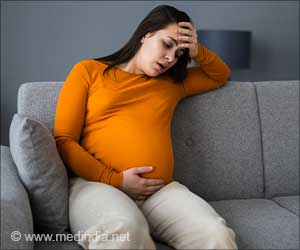A new study has held the stress caused by the 9/11 disaster responsible for an increase in low birth weight babies born in and around New York
A new study has held the stress caused by the 9/11 disaster responsible for an increase in low birth weight babies born in and around New York in the months after the tragedy.
Researchers at the University of California at Berkeley reported a two-third increase in the risk of giving birth to underweight babies in the week after 9/11.Professor Brenda Eskenazi and colleagues studied data from birth certificates of 1,660,401 babies born in New York between January 1996 and December 2002. When they compared data from babies born in the week before the disaster with those born in the week after in NYC, they found a shift in the distribution of low birth weights (LBW), with a higher proportion of babies being born weighing less than 2,000g. “Normal” birth weight is considered to be above 2,500g.
“In New York City in the week after 9/11 we found there was a slightly increased risk (44 percent) of new-born babies weighing below 1,500g and a 67 percent increased risk of babies weighing between 1,500g and 1,999g compared with the three weeks before the disaster. There were no statistically significant changes in any LBW category in upstate NY, or in babies being born preterm in either location,” Prof Eskenazi said.
Overall, moderately pre-term births (32-36 weeks) were reduced in both areas for the first month post-9/11. “We think that probably the most vulnerable foetuses were miscarried or born prematurely in that first week after 9/11, leaving behind those who were the strongest. Another possibility is that one response to stress might be to ‘hold onto’ the foetus and to deliver later,” said Prof Eskenazi.
In NYC there was a 36 percent increased risk of babies being born weighing less than 1,500g in December 2001, and a 28 percent increased risk in January 2002. In upstate NY, there was a similar peak around the new year, with a 46 percent increased risk in January of LBW less than 1,500g. In the April/May period in NYC there was a 29 percent increased risk, and a 32 percent increased risk in upstate NY.
“We think that the increased incidence in low birth weights is mainly due to stress-initiated early deliveries. We had hypothesised that women further away from the disaster might have less stress associated with the event. We observed immediate effects in NYC, but longer-term effects both in NYC and upstate,” said Prof Eskenazi.
Advertisement
Prof Eskenazi concluded that the study proved that women were more likely to have a spontaneous preterm birth immediately after a stressful event.
Advertisement
The study is published in the journal Human Reproduction.
Source-ANI
LIN /J











